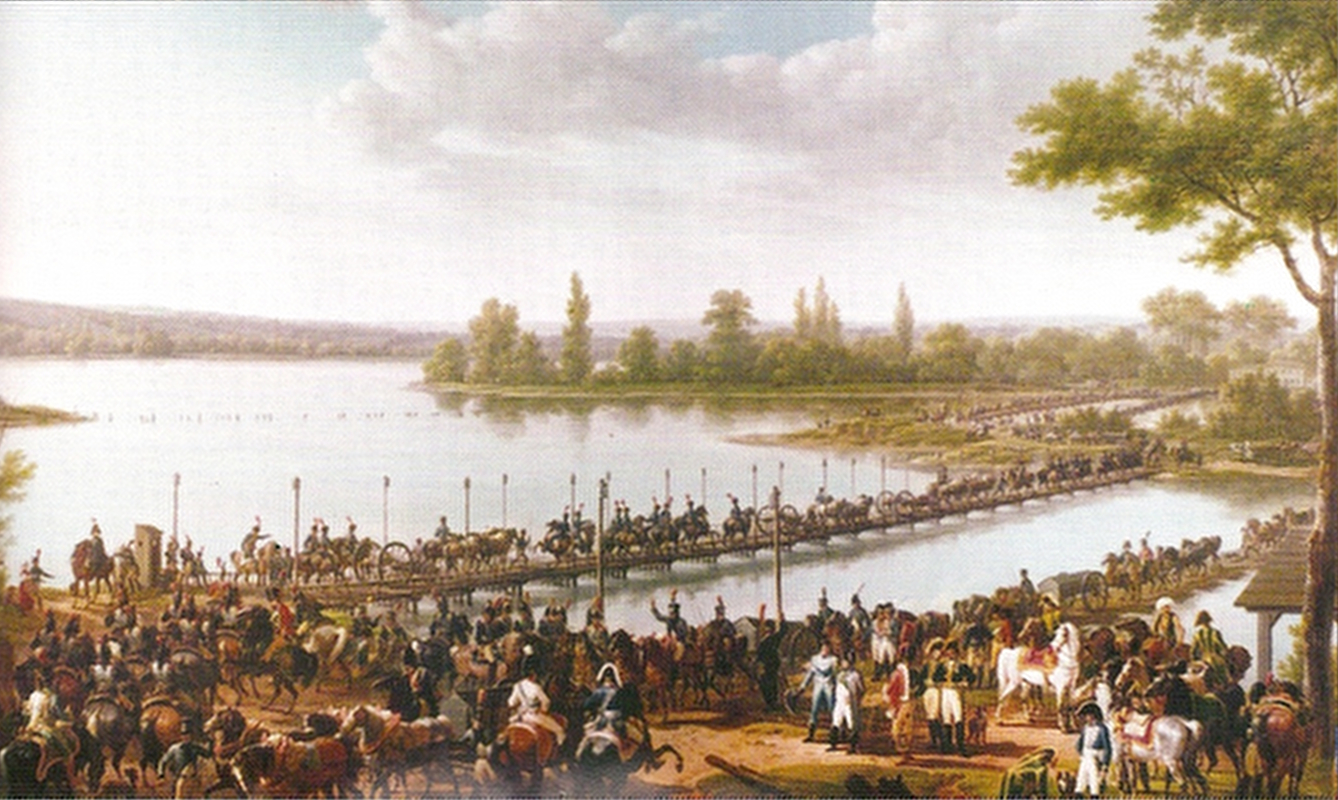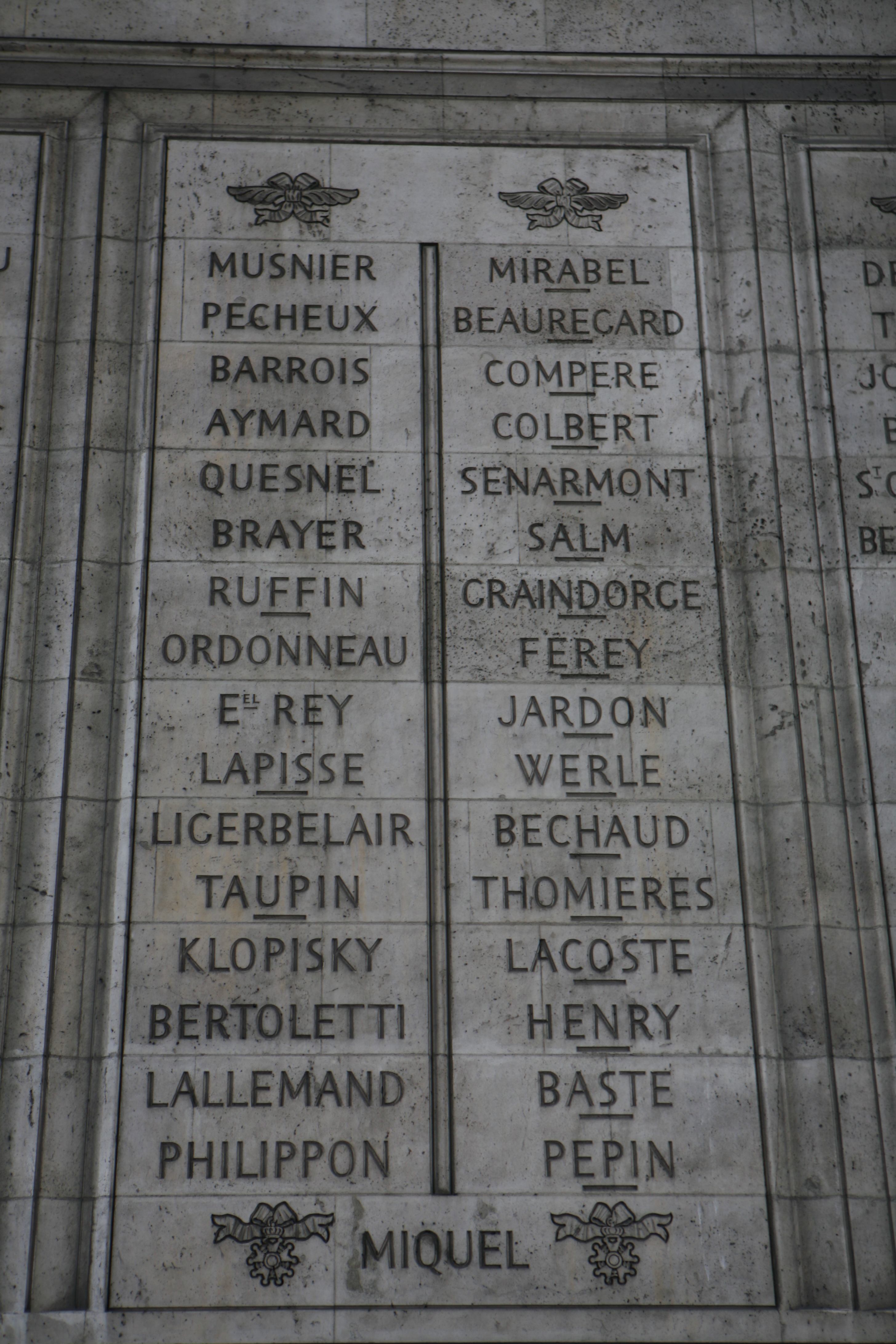|
Economic And Logistical Aspects Of The Napoleonic Wars
The economic and logistical aspects of the Napoleonic Wars describe all the Economy, economic factors involved in material management—economic policies, production, etc.—and financial management—funding war expenditures, etc.—of the Napoleonic Wars, wars conducted under the Consulate and the First Empire, as well as the economic causes and consequences of these conflicts. They also cover the management and organization of industrial resources for the production of weapons and military equipment, as well as military logistics and attendance for the supply of Military campaign, armies in the field. In any large-scale conflict, managing belligerents' economic and logistical resources for equipping and supplying their armed forces is one of the major aspects of "warfare," just as much as military tactics and strategy in theaters of operations and battlefields, and the Napoleonic wars were no exception. Napoleon took a personal interest in questions of logistics and "military ec ... [...More Info...] [...Related Items...] OR: [Wikipedia] [Google] [Baidu] |
French Invasion Of Russia
The French invasion of Russia, also known as the Russian campaign (), the Second Polish War, and in Russia as the Patriotic War of 1812 (), was initiated by Napoleon with the aim of compelling the Russian Empire to comply with the Continental System, continental blockade of the United Kingdom. Widely studied, Napoleon's incursion into Russia stands as a focal point in military history, recognized as among the list of battles by casualties, most devastating military endeavors globally. In a span of fewer than six months, the campaign exacted a staggering toll, claiming the lives of nearly a million soldiers and civilians. On 24 June 1812 and subsequent days, the initial wave of the multinational Grande Armée crossed the Neman River, marking the entry from the Duchy of Warsaw into Russia. Employing extensive forced marches, Napoleon rapidly advanced his army of nearly half a million individuals through European Russia, Western Russia, encompassing present-day Belarus, in a b ... [...More Info...] [...Related Items...] OR: [Wikipedia] [Google] [Baidu] |
Waterloo Campaign
The Waterloo campaign, also known as the Belgian campaign (15 June – 8 July 1815) was fought between the French Army of the North (France), Army of the North and two War of the Seventh Coalition, Seventh Coalition armies, an Anglo-allied army and a Prussian army. Initially the French army had been commanded by Napoleon Bonaparte, but he left for Paris after the French defeat at the Battle of Waterloo. Command then rested on Marshals Marshal Soult, Soult and Marshal Grouchy, Grouchy, who were in turn replaced by Marshal Davout, who took command at the request of the French Provisional Government. The Anglo-allied army was commanded by the Duke of Wellington and the Prussian army by Gebhard Leberecht von Blücher, Field Marshall Graf von Blücher. The war between France and the Seventh Coalition came when the other European Great Powers refused to recognise Napoleon as Emperor of the French upon his return from exile on the Principality of Elba, island of Elba, and declared war ... [...More Info...] [...Related Items...] OR: [Wikipedia] [Google] [Baidu] |
Napoleon III
Napoleon III (Charles-Louis Napoléon Bonaparte; 20 April 18089 January 1873) was President of France from 1848 to 1852 and then Emperor of the French from 1852 until his deposition in 1870. He was the first president, second emperor, and last monarch of France. Prior to his reign, Napoleon III was known as Louis Napoleon Bonaparte. He was born at the height of the First French Empire in the Tuileries Palace at Paris, the son of Louis Bonaparte, King of Holland (r. 1806–1810), and Hortense de Beauharnais, and paternal nephew of the reigning Emperor Napoleon I. It would only be two months following his birth that he, in accordance with Napoleon I's dynastic naming policy, would be bestowed the name of Charles-Louis Napoleon, however, shortly thereafter, Charles was removed from his name. Louis Napoleon Bonaparte was the first and only president of the French Second Republic, 1848 French presidential election, elected in 1848. He 1851 French coup d'état, seized power by force i ... [...More Info...] [...Related Items...] OR: [Wikipedia] [Google] [Baidu] |
Europe Map Napoleon Blocus
Europe is a continent located entirely in the Northern Hemisphere and mostly in the Eastern Hemisphere. It is bordered by the Arctic Ocean to the north, the Atlantic Ocean to the west, the Mediterranean Sea to the south, and Asia to the east. Europe shares the landmass of Eurasia with Asia, and of Afro-Eurasia with both Africa and Asia. Europe is commonly considered to be separated from Asia by the watershed of the Ural Mountains, the Ural River, the Caspian Sea, the Greater Caucasus, the Black Sea, and the waterway of the Bosporus Strait. "Europe" (pp. 68–69); "Asia" (pp. 90–91): "A commonly accepted division between Asia and Europe ... is formed by the Ural Mountains, Ural River, Caspian Sea, Caucasus Mountains, and the Black Sea with its outlets, the Bosporus and Dardanelles." Europe covers approx. , or 2% of Earth's surface (6.8% of Earth's land area), making it the second-smallest continent (using the seven-continent model). Politically, Europe is divided into abou ... [...More Info...] [...Related Items...] OR: [Wikipedia] [Google] [Baidu] |
Eugène De Beauharnais
Eugène Rose de Beauharnais (; 3 September 1781 – 21 February 1824) was a French statesman and military officer who served in the French Revolutionary and Napoleonic Wars. Through the second marriage of his mother, Joséphine de Beauharnais, he was the stepson of Napoleon Bonaparte. Under the First French Empire, French Empire he also became Napoleon's adopted son (but not the heir to the imperial throne). He was Viceroy of the Kingdom of Italy (Napoleonic), Kingdom of Italy under his stepfather, from 1805 to 1814, and commanded the Army of Italy (France), Army of Italy during the Napoleonic Wars. Historians consider him one of Napoleon's most able relatives. Family Eugène Rose de Beauharnais was born in Paris on 3 September 1781 as the son of Viscount Alexandre de Beauharnais and Marie-Josèphe Rose Tascher de la Pagerie (future empress Josephine), both born in the French colony of Martinique. His parents separated when Eugène was three years old. At the age of five, Eug� ... [...More Info...] [...Related Items...] OR: [Wikipedia] [Google] [Baidu] |
Greatcoat
A greatcoat (also watchcoat) is a large, woollen overcoat designed for warmth and protection against wind and weather, and features a collar that can be turned up and cuffs that can be turned down to protect the face and the hands, while the Cape, short rain-cape at the shoulders protects from the wind and repels rain. In the 19th century, such a coat was part of a soldier's military uniform, to be worn while on watch (guard duty), hence the term ''watchcoat''. The drape of the greatcoat reached to below the knee of the wearer, the short cape drapes to the elbow, and the capacious external pockets allow the wearer to carry dry food and other items; an example is the ''Petersham coat'', named after Charles Stanhope, 4th Earl of Harrington, Viscount Petersham. In the fashion of the Regency era (1795–1837) a greatcoat might feature several short capes, usually designed, cut, and Tailoring, tailored to the specifications of fit and Taste (sociology), aesthetic taste of a dandy. [...More Info...] [...Related Items...] OR: [Wikipedia] [Google] [Baidu] |
Auguste François-Marie De Colbert-Chabanais
Brigadier-General Auguste François-Marie de Colbert-Chabanais (18 October 1777 – 3 January 1809) was a French Army officer who served in the French Revolutionary and Napoleonic Wars. He became a general officer of cavalry during the Napoleonic Wars and fought in several major battles under Emperor Napoleon from 1805 to 1807. He was killed by a long-range shot fired by Irish rifleman Thomas Plunket during the Battle of Cacabelos in 1809. Early career Colbert joined the army as a private, but soon became aide-de-camp to Emmanuel Grouchy, then to Joachim Murat and served in the Army of Italy (France), Army of Italy. During the French invasion of Egypt (1798), Egyptian campaign, he took part in the Saléhieh affair and the Siege of Acre (1799), Siege of Acre, receiving a serious wound in the latter action. He returned to France with Louis Desaix then went to Italy, where he behaved with distinction at the Battle of Marengo on 14 June 1800. His actions merited the star of the Lé ... [...More Info...] [...Related Items...] OR: [Wikipedia] [Google] [Baidu] |
Consulate
A consulate is the office of a consul. A type of mission, it is usually subordinate to the state's main representation in the capital of that foreign country (host state), usually an embassy (or, only between two Commonwealth countries, a high commission). The term "consulate" may refer not only to the office of a consul, but also to the building occupied by the consul and the consul's staff. The consulate primarily serves its visiting nationals to the region in which it is based, and prospective visitors, commercial entities, or regional governments, who wish access or connections to the consulate's home country. There is usually also counselor services in the capital too, and in those cases, the consulate may share premises with the embassy itself. Consular rank A consul of the highest rank is termed a consul-general and is appointed to a consulate-general. There are typically one or more deputy consuls-general, consuls, vice-consuls, and consular agents working under the ... [...More Info...] [...Related Items...] OR: [Wikipedia] [Google] [Baidu] |
War Economy
A war economy or wartime economy is the set of preparations undertaken by a modern state to mobilize its economy for war production. Philippe Le Billon describes a war economy as a "system of producing, mobilizing and allocating resources to sustain the violence." Some measures taken include the increasing of interest rates as well as the introduction of resource allocation programs. Approaches to the reconfiguration of the economy differ from country to country. Many states increase the degree of planning in their economies during wars. That in many cases extends to rationing and in some cases to conscription for civil defense, such as the Women's Land Army and Bevin Boys in the United Kingdom during World War II. During total war situations, certain buildings and positions are often seen as important targets by combatants. The Union blockade, Union General William Tecumseh Sherman's March to the Sea during the American Civil War, and the strategic bombing of enemy cities an ... [...More Info...] [...Related Items...] OR: [Wikipedia] [Google] [Baidu] |
Napoleon I's Exile To St
Napoleon Bonaparte (born Napoleone di Buonaparte; 15 August 1769 – 5 May 1821), later known by his regnal name Napoleon I, was a French general and statesman who rose to prominence during the French Revolution and led Military career of Napoleon, a series of military campaigns across Europe during the French Revolutionary and Napoleonic Wars from 1796 to 1815. He led the French First Republic, French Republic as French Consulate, First Consul from 1799 to 1804, then ruled the First French Empire, French Empire as Emperor of the French from 1804 to 1814, and briefly again in 1815. He was King of Italy, King of Kingdom of Italy (Napoleonic), Italy from 1805 to 1814 and Protector of the Confederation of the Rhine, Protector of the Confederation of the Rhine from 1806 to 1813. Born on the island of Corsica to a family of Italian origin, Napoleon moved to mainland France in 1779 and was commissioned as an officer in the French Royal Army in 1785. He supported the French Rev ... [...More Info...] [...Related Items...] OR: [Wikipedia] [Google] [Baidu] |









